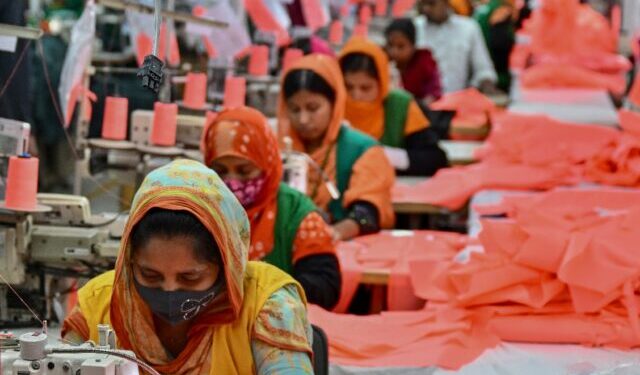DHAKA — U.S. buyers are already halting orders from Bangladesh, the world’s second-largest garment exporter, after President Trump slapped the South Asian country with steep new tariffs last week.
The 37% tariff—more than double the previous 16% rate—has jolted Bangladesh’s vital textile industry, which makes up 80% of the country’s exports. The timing couldn’t be worse, as the industry was just beginning to recover from last year’s student-led uprising that ousted the previous government.
Interim Prime Minister Muhammad Yunus pleaded with President Trump on Monday for a three-month delay, asking for time to implement a plan that would increase U.S. exports—especially American farm products like cotton, wheat, corn, and soybeans.
“Bangladesh will take all necessary actions to fully support your trade agenda,” Yunus said in a statement to the White House.
Manufacturers on the ground say the effect was immediate.
Mohammad Mushfiqur Rahman, a leather goods exporter, said a U.S. buyer suddenly halted a $300,000 shipment of bags and wallets, saying costs had become unsustainable under the new tariffs.
“He’s a long-time buyer and now both of us are in limbo,” Rahman said.
Another apparel exporter, Wikitex-BD, reported a $150,000 shipment suspended for the same reason.
“My U.S. buyer said they can’t pass the extra cost to their clients,” CEO AKM Saifur Rahman told Bengali outlet Prothom Alo.
Bangladesh exported $8.4 billion in goods to the U.S. last year, with over $7 billion from ready-made garments alone.
Md Anwar Hossain, the acting head of Bangladesh’s top garment exporters association, sent a letter to U.S. buyers pleading for patience.
“We understand the urgency, but shifting the burden to suppliers right now will only make things worse,” he said.
But some American retailers are already doing just that. Former association director Mohiuddin Rubel said smaller buyers are demanding that Bangladeshi suppliers absorb the tariff costs or reduce prices to keep contracts.




















